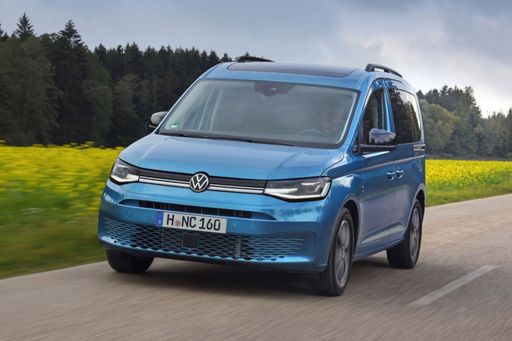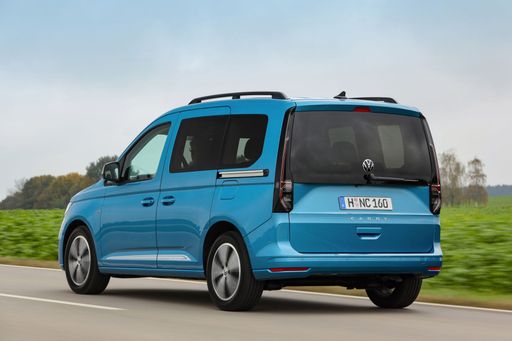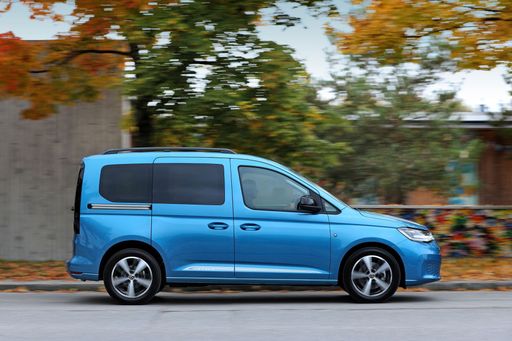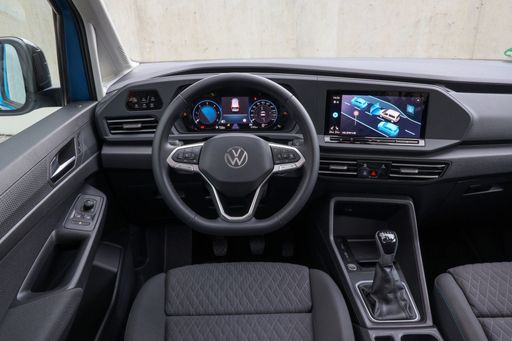Renault Trafic Transporter vs VW Caddy - Differences and prices compared
Compare performance (170 HP vs 150 HP), boot space and price (33200 £ vs 27800 £) at a glance. Find out which car is the better choice for you – Renault Trafic Transporter or VW Caddy?
Costs and Efficiency:
When it comes to price and running costs, the biggest differences usually appear. This is often where you see which car fits your budget better in the long run.
VW Caddy has a somewhat advantage in terms of price – it starts at 27800 £, while the Renault Trafic Transporter costs 33200 £. That’s a price difference of around 5442 £.
Fuel consumption also shows a difference: VW Caddy manages with 0.50 L and is therefore significantly more efficient than the Renault Trafic Transporter with 6.60 L. The difference is about 6.10 L per 100 km.
As for range, the Renault Trafic Transporter performs decisively better – achieving up to 318 km, about 197 km more than the VW Caddy.
Engine and Performance:
Under the bonnet, it becomes clear which model is tuned for sportiness and which one takes the lead when you hit the accelerator.
When it comes to engine power, the Renault Trafic Transporter has a a bit edge – offering 170 HP compared to 150 HP. That’s roughly 20 HP more horsepower.
In acceleration from 0 to 100 km/h, the Renault Trafic Transporter is barely noticeable quicker – completing the sprint in 10.80 s, while the VW Caddy takes 11.40 s. That’s about 0.60 s faster.
In terms of top speed, the VW Caddy performs barely noticeable better – reaching 186 km/h, while the Renault Trafic Transporter tops out at 180 km/h. The difference is around 6 km/h.
There’s also a difference in torque: Renault Trafic Transporter pulls somewhat stronger with 380 Nm compared to 320 Nm. That’s about 60 Nm difference.
Space and Everyday Use:
Whether family car or daily driver – which one offers more room, flexibility and comfort?
Seats: VW Caddy offers slightly more seating capacity – 7 vs 6.
In curb weight, VW Caddy is slightly lighter – 1575 kg compared to 1848 kg. The difference is around 273 kg.
In maximum load capacity, the Renault Trafic Transporter performs convincingly better – up to 8900 L, which is about 5200 L more than the VW Caddy.
When it comes to payload, Renault Trafic Transporter decisively takes the win – 1222 kg compared to 710 kg. That’s a difference of about 512 kg.
Who comes out on top?
Overall, the VW Caddy shows itself to be dominates this comparison and secures the title of DriveDuel Champion.
It convinces with the more balanced overall package and proves to be the more versatile choice for everyday use.

VW Caddy
Costs and Consumption
View detailed analysis
Engine and Performance
View detailed analysis
Dimensions and Body
View detailed analysis
Renault Trafic Transporter
The Renault Trafic is a practical, workhorse transporter that hides thoughtful cabin comfort behind a tough, utilitarian exterior, so you can tackle a busy week without sacrificing sanity. It’s a sensible choice for buyers who want reliability and clever flexibility rather than flash, with just enough character to make daily hauling feel less like a chore.
detailsVW Caddy
The VW Caddy is the Swiss-army knife of compact vans — practical, surprisingly refined, and ready to swap a weekend adventure for a grocery run without breaking a sweat. It’s user-friendly, comfortable enough for daily driving, and sensible for buyers who want utility with a dash of style and no drama.
details




|
|
|
|
|
Costs and Consumption |
|
|---|---|
|
Price
33200 - 43500 £
|
Price
27800 - 45900 £
|
|
Consumption L/100km
6.6 - 7.8 L
|
Consumption L/100km
0.5 - 6.9 L
|
|
Consumption kWh/100km
21.2 - 22.2 kWh
|
Consumption kWh/100km
-
|
|
Electric Range
240 - 318 km
|
Electric Range
116 - 121 km
|
|
Battery Capacity
-
|
Battery Capacity
19.70 kWh
|
|
co2
0 - 206 g/km
|
co2
10 - 165 g/km
|
|
Fuel tank capacity
80 L
|
Fuel tank capacity
50 L
|
Dimensions and Body |
|
|---|---|
|
Body Type
Cargo Van
|
Body Type
High Roof Estate
|
|
Seats
3 - 6
|
Seats
5 - 7
|
|
Doors
4
|
Doors
5
|
|
Curb weight
1848 - 2075 kg
|
Curb weight
1575 - 1998 kg
|
|
Trunk capacity
-
|
Trunk capacity
-
|
|
Length
5080 - 5480 mm
|
Length
4500 - 4853 mm
|
|
Width
1956 mm
|
Width
1855 mm
|
|
Height
1967 - 2509 mm
|
Height
1819 - 1860 mm
|
|
Max trunk capacity
3300 - 8900 L
|
Max trunk capacity
2556 - 3700 L
|
|
Payload
848 - 1222 kg
|
Payload
501 - 710 kg
|
Engine and Performance |
|
|---|---|
|
Engine Type
Diesel, Electric
|
Engine Type
Petrol, Diesel, Plugin Hybrid
|
|
Transmission
Manuel, Automatic
|
Transmission
Manuel, Automatic
|
|
Transmission Detail
Manual Gearbox, Reduction Gearbox, Automatic Gearbox
|
Transmission Detail
Manual Gearbox, Dual-Clutch Automatic
|
|
Drive Type
Front-Wheel Drive
|
Drive Type
Front-Wheel Drive, All-Wheel Drive
|
|
Power HP
110 - 170 HP
|
Power HP
102 - 150 HP
|
|
Acceleration 0-100km/h
10.8 - 15.1 s
|
Acceleration 0-100km/h
11.4 - 14 s
|
|
Max Speed
110 - 180 km/h
|
Max Speed
173 - 186 km/h
|
|
Torque
245 - 380 Nm
|
Torque
220 - 320 Nm
|
|
Number of Cylinders
4
|
Number of Cylinders
4
|
|
Power kW
81 - 125 kW
|
Power kW
75 - 110 kW
|
|
Engine capacity
1997 cm3
|
Engine capacity
1498 - 1968 cm3
|
General |
|
|---|---|
|
Model Year
2022 - 2025
|
Model Year
2024
|
|
CO2 Efficiency Class
F, G, A
|
CO2 Efficiency Class
E, F, B
|
|
Brand
Renault
|
Brand
VW
|
What drive types are available for the Renault Trafic Transporter?
The Renault Trafic Transporter is available as Front-Wheel Drive.
The prices and data displayed are estimates based on German list prices and may vary by country. This information is not legally binding.
